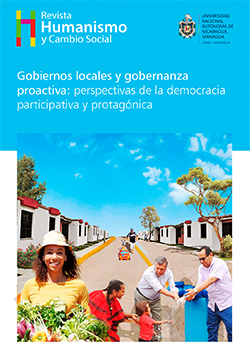Psychosocial factors affecting the learning of hearing deficient students at Isaiah 29:18 Christian school (Nejapa District, Managua)
DOI:
https://doi.org/10.5377/hcs.v20i20.15841Keywords:
Hearing deficiency, learning difficulties, students, psychosocial factors, parental involvementAbstract
This research paper was carried out in the first semester 2022, as a graduation modality to earn a degree in psychology, whose purpose is to analyze the psychosocial factors affecting the learning of hearing deficient students in secondary school at Isaiah 29:18, Christian school. This research has a sample of seven students whose ages are from 12 to 22 years old, using a quantitative method. The main methods of data collection were semi-structured interviews with students, teachers and parents. Subsequently, dyscalculia and dysgraphia worksheets were applied, allowing the identification of the specific difficulties presented by the students, a focus group and the application of the Weil nonverbal test. As a result of the research, three factors that affect the students were identified, which are: little knowledge of sign language by parents, poor detection of learning difficulties and a deficit in parental involvement. In favor of the educational work of teachers and parents, playful strategies and visual techniques that will contribute to the management of learning difficulties are proposed.
Downloads
334
References
Hernández. E. P (2017) Involucramiento parental y sus efectos en el desempeño estudiantil en la prueba excale 06. Universidad Autónoma del estado de Morelos, México https://www.comie.org.mx/congreso/memoriaelectronica/v14/doc/1321.pdf
Jara, S., & Ulloa, L. (s.f.). La lectura: un desafío posible para los niños sordos. CPAL. https://cpal.edu.pe/colegio-fernando-wiese/novedades/la-lectura-un-desafioposible-para-los-ninos-sordos/
Narvarte, M. (2003). Trastornos escolares; detección-diagnóstico y tratamiento. Lexus. Disponible en: https://es.scribd.com/document/538182270/Narvarte-Mariana-Trastornos-Escolares-Deteccion-Diagnostico-Tratamiento
Pulgar Anguita, M. D. (2018). Las necesidades educativas especiales de los alumnos/as con deficiencia auditiva. Redalyc. https://www.redalyc.org/journal/5746/574660907012/html/
Razeto, A. (2016). El involucramiento de las familias en la educación de los niños. Cuatro reflexiones para fortalecer la relación entre familias y escuela. Scielo Uruguay. http://www.scielo.edu.uy/scielo.php?script=sci_arttext&pid=S1688
Regader, B. (2015). Psicología educativa: definición, conceptos y teorías. Psicología y Mente. https://psicologiaymente.com/desarrollo/psicologia-educativa
Solórzano M. Et al. (2020). Rendimiento intelectual y memoria de trabajo en niños con trastornos específicos del aprendizaje. Revista del Hospital Psiquiátrico de La Habana, 17(2).
Weil P. (1951). Prueba de inteligencia no verbal. Disponible en: https://www.entornoestudiantil.com/prueba-de-inteligencia-no-verbal-weil/
Downloads
Published
How to Cite
Issue
Section
License
Copyright (c) 2023 Universidad Nacional Autónoma de Nicaragua, UNAN-Managua

This work is licensed under a Creative Commons Attribution-NonCommercial-ShareAlike 4.0 International License.




